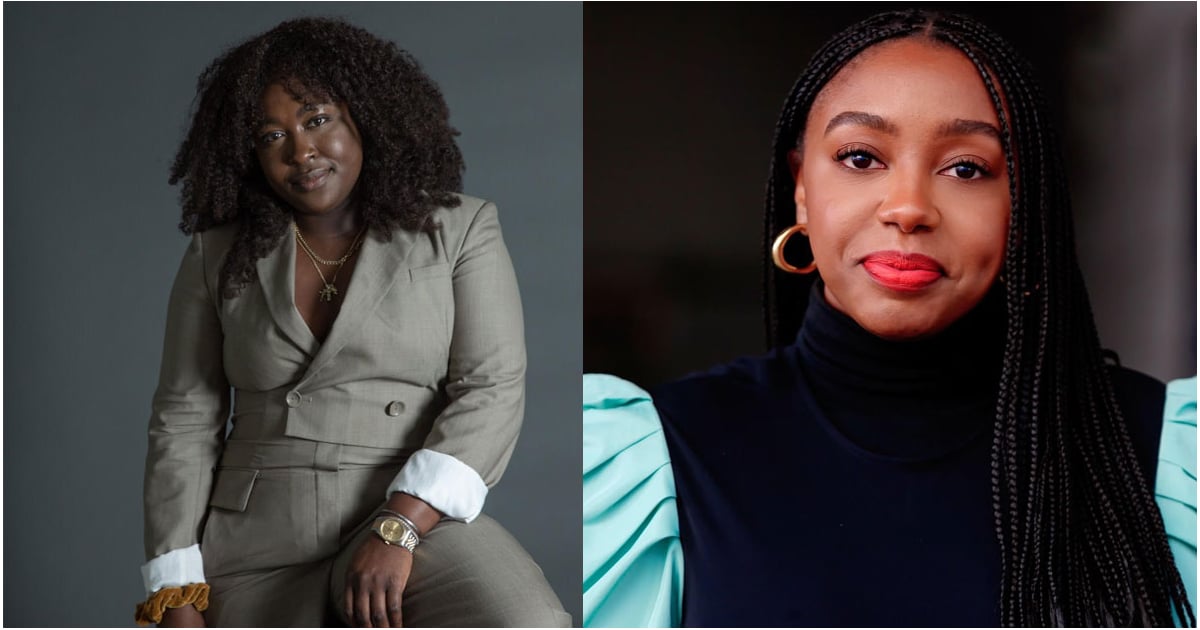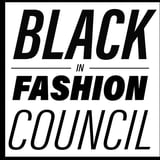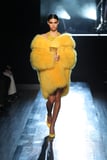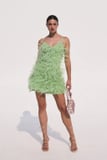
July 07, 2020 at 01:55PM
We saw retailers, brands, and publishers make pledges to combat racism all over Instagram in the weeks following George Floyd’s murder and the Black Lives Matter protests that erupted around the country, but two of the fashion world’s insiders vowed to drive that reckoning with the birth of a new initiative. Teen Vogue‘s editor-in-chief, Lindsay Peoples Wagner, and publicist and owner of Sandrine Charles Consulting, Sandrine Charles, joined forces to launch the Black in Fashion Council in late June, and as evidenced by their ability to build warp-speed momentum and generate support across the industry, their efforts may just bring the meaningful change that fashion so desperately needs to combat systemic racism.
Instead of just continuing to call out brands for actions that seem tone-deaf, or insensitive to the moment or to culture overall, we are creating a safe space . . . to build a better foundation and make change.
As outlined in the website’s mission statement, “The Black in Fashion Council was founded to represent and secure the advancement of black individuals in the fashion and beauty industry.” With the support of the Council of Fashion Designers of America and a network of more than 400 Black industry stakeholders that includes models and executives, as well as editors like Nikki Ogunnaike at GQ and stylists like Shiona Turini, the Black in Fashion Council has the access and credibility it needs to do that work. So what does that work look like? The Council will partner with companies to work from the inside out, using an equality index report to create actionable benchmarks for corporate policies around inclusion. In addition, they’ll help uplift Black talent across the industry through internship and mentorship programs, helping brands to make good on their promises to enact real change.
ADVERTISEMENT
ADVERTISEMENTKate Spade Autumn/Winter Sale |
Below, the duo behind the Council shares more about the important work they’re doing. Read on for our interview and learn more about the Black in Fashion Council when you visit the website and subscribe for updates.
Founders Sandrine Charles (left) and Lindsay Peoples Wagner pictured above
POPSUGAR: You’ve organized so quickly and launched during such a critical time, was there a specific moment that you two connected and thought this is something we can change? What was that initial conversation like?
Sandrine Charles: Lindsay and I connected at the top of the month, ideating on what we can do to make changes in our industry. After aligning with our peers and industry stakeholders, the work to create the council was birthed. There was so much going on at the moment and systematic change was a priority.
PS: How are you approaching brands to join the initiative?
SC: We are connecting with brands through initial conversations and providing overall council strategy.
PS: The concept of moving from cancel culture to accountability is such an important message, rooted in the idea that brands really can change. Can you speak to any responses or work that brands are doing that’s given you hope moving forward?
Lindsay Peoples Wagner: I think the switch of it not just being about frustration [but] actual communication is incredibly key. Instead of just continuing to call out brands for actions that seem tone-deaf, or insensitive to the moment or to culture overall, we are creating a safe space – with resources and access to advisors – so they can have the conversations necessary to build a better foundation and make change.
The index score is a way to give brands and stakeholders a way to monitor their progress – things they’re doing well, things they need to improve on. We understand that real change can’t happen overnight, but we see it as holding out a hand and saying we want to build a better relationship together – and really giving brands the chance to rise to the occasion over time, to create that real, long-lasting change.
Media has a way of determining things based off of aesthetics and who is “chic” enough or cool enough . . . so a lot of the work we’ll be doing in that space is challenging the ideas behind who is good enough.
PS: Can you tell us a bit more about the internship/mentorship program you’re starting?
LPW: A lot of what needs to be fixed is the pipeline in fashion. If most people in power who are white only have a network of individuals who are also white, not much is going to change as far as diversity. And specifically in fashion and beauty, it’s hard for Black people to get their foot in the door, but also to be able to afford to have a freelance or assistant job without financial help. The work we will be doing in this space is crucial to allow Black individuals to have access to opportunities, but also be put in positions of success once they get there.
PS: How are you partnering with media companies to ensure Black employees have equal opportunity when it comes to jobs, salary, and career growth?
LPW: Media specifically has a way of determining things based off of aesthetics and who is “chic” enough or cool enough to be used on covers or hired for certain jobs, so a lot of the work we’ll be doing in that space is challenging the ideas behind who is good enough.
PS: What do you hope the conversations within the fashion industry look like in a year?
SC: We are hoping for progress in place and in fruition. We understand that real change takes time, so we can begin with working within the three-year commitment of the program with brands and companies to establish this change cycle.
More Celeb News
Author Hannah Weil McKinley | Popsugar
Selected by CWC
ADVERTISEMENT
ADVERTISEMENTUp to 30% off Gift Sets |








